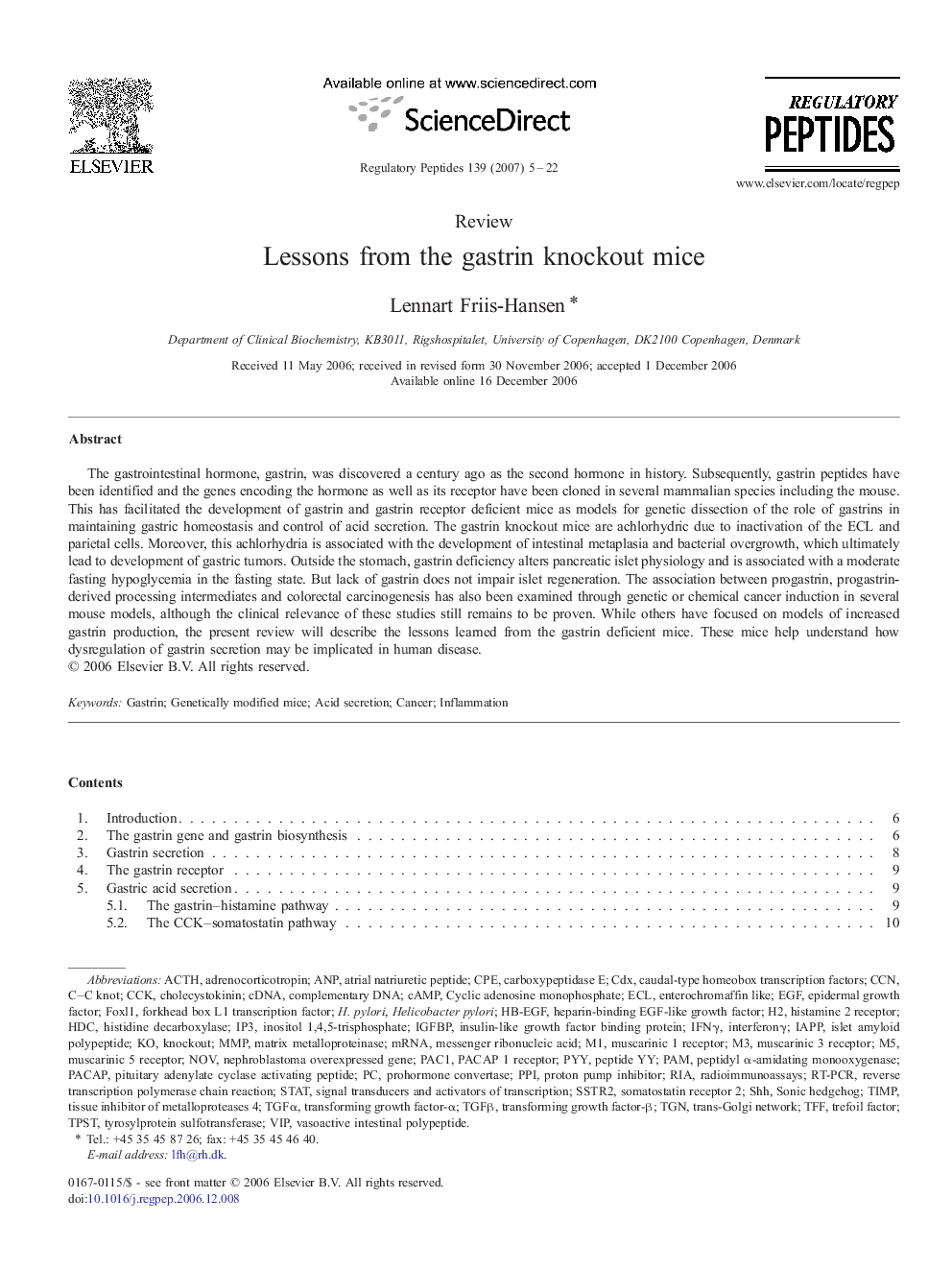| Article ID | Journal | Published Year | Pages | File Type |
|---|---|---|---|---|
| 2023434 | Regulatory Peptides | 2007 | 18 Pages |
The gastrointestinal hormone, gastrin, was discovered a century ago as the second hormone in history. Subsequently, gastrin peptides have been identified and the genes encoding the hormone as well as its receptor have been cloned in several mammalian species including the mouse. This has facilitated the development of gastrin and gastrin receptor deficient mice as models for genetic dissection of the role of gastrins in maintaining gastric homeostasis and control of acid secretion. The gastrin knockout mice are achlorhydric due to inactivation of the ECL and parietal cells. Moreover, this achlorhydria is associated with the development of intestinal metaplasia and bacterial overgrowth, which ultimately lead to development of gastric tumors. Outside the stomach, gastrin deficiency alters pancreatic islet physiology and is associated with a moderate fasting hypoglycemia in the fasting state. But lack of gastrin does not impair islet regeneration. The association between progastrin, progastrin-derived processing intermediates and colorectal carcinogenesis has also been examined through genetic or chemical cancer induction in several mouse models, although the clinical relevance of these studies still remains to be proven. While others have focused on models of increased gastrin production, the present review will describe the lessons learned from the gastrin deficient mice. These mice help understand how dysregulation of gastrin secretion may be implicated in human disease.
